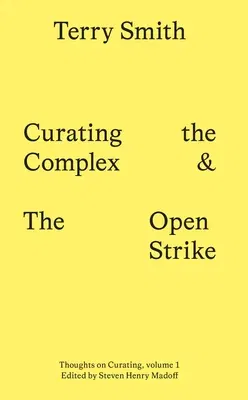Terry Smith
(Author)Curating the Complex and the Open StrikePaperback, 3 May 2022

Qty
1
Turbo
Ships in 2 - 3 days
In Stock
Free Delivery
Cash on Delivery
15 Days
Free Returns
Secure Checkout

Print Length
96 pages
Language
English
Publisher
Sternberg Press
Date Published
3 May 2022
ISBN-10
3956795318
ISBN-13
9783956795312
Description
Product Details
Author:
Book Format:
Paperback
Country of Origin:
EE
Date Published:
3 May 2022
Dimensions:
17.78 x
11.18 x
1.02 cm
ISBN-10:
3956795318
ISBN-13:
9783956795312
Language:
English
Pages:
96
Publisher:
Weight:
90.72 gm